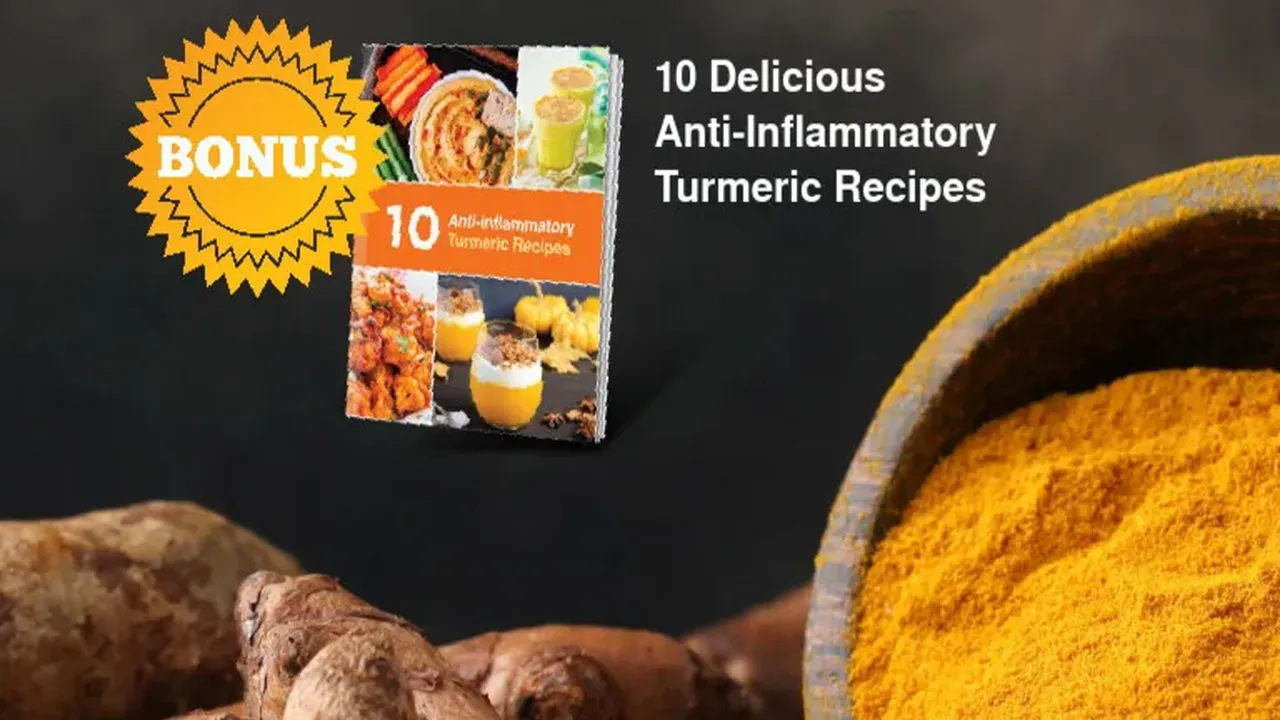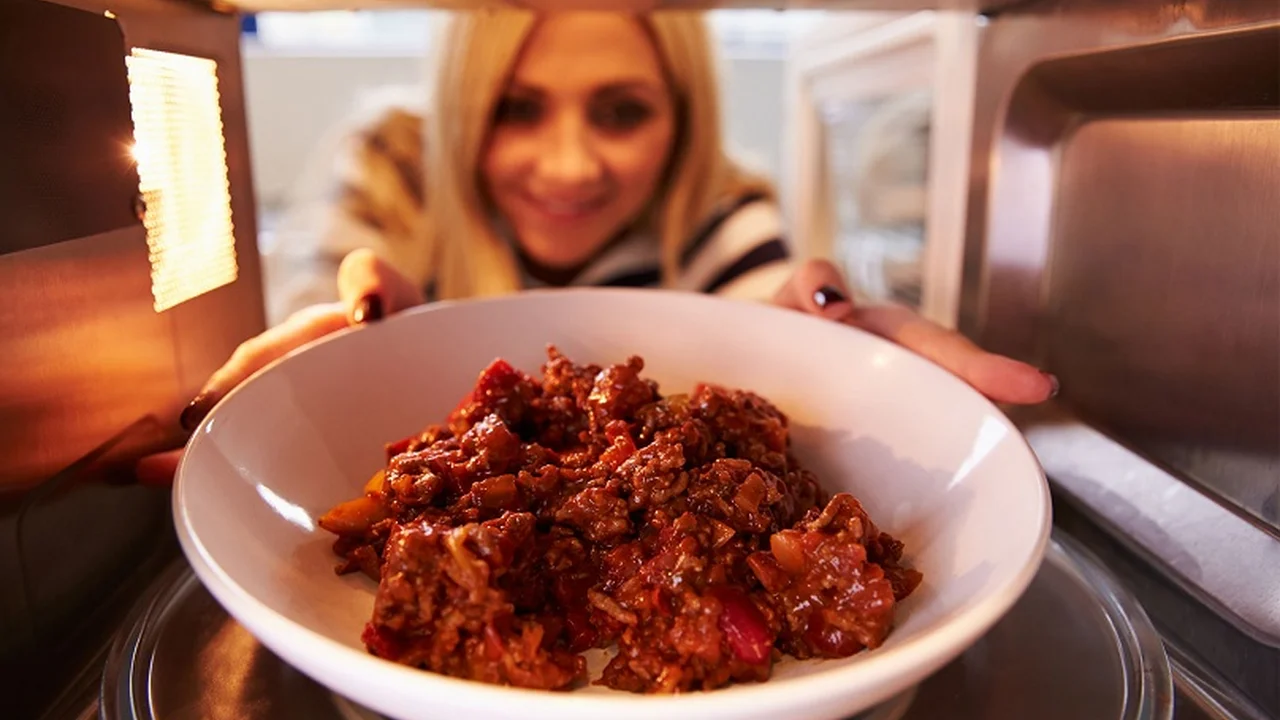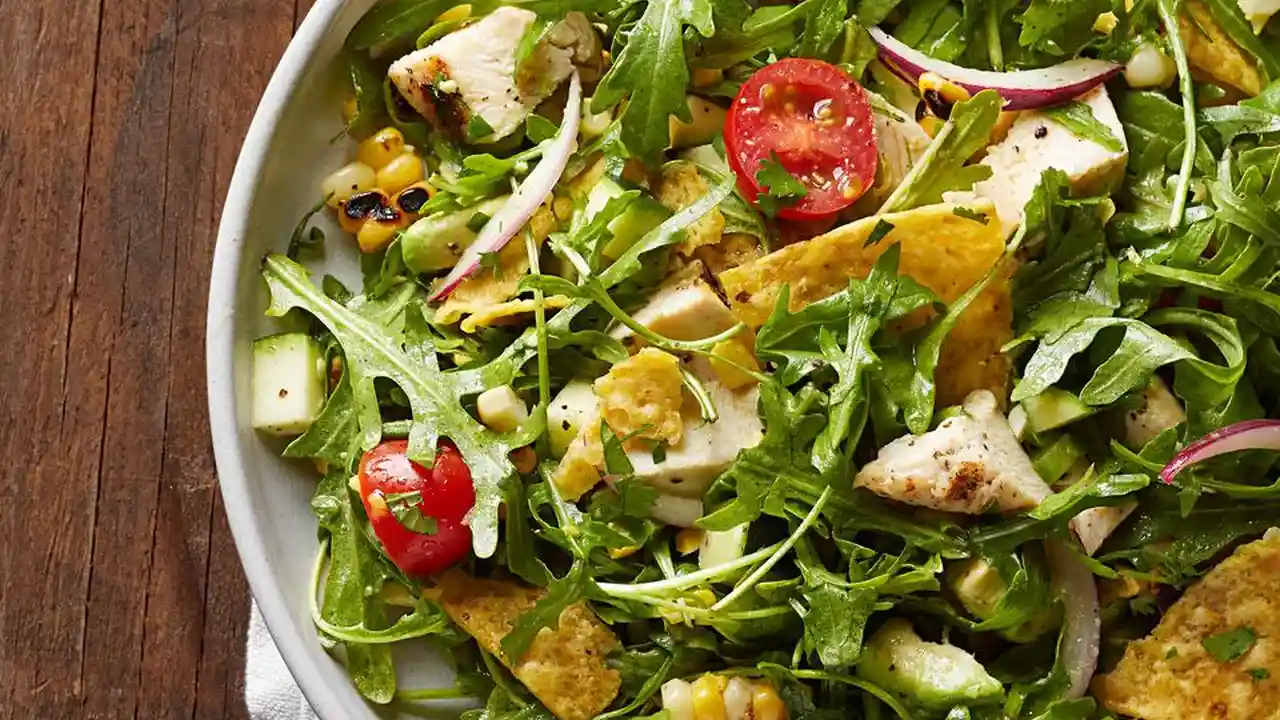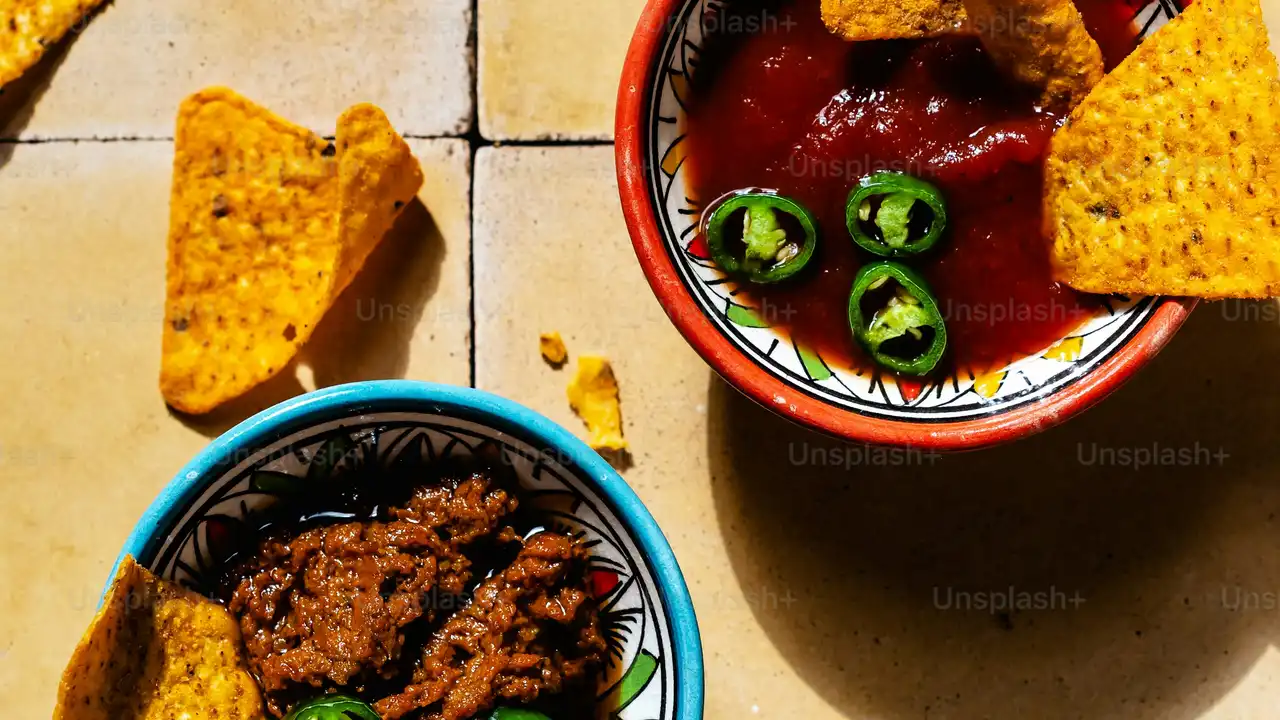5 Best Anti-Inflammatory Recipes to Reduce Pain
Looking for anti-inflammatory foods? These 5 recipes are packed with ingredients that can help reduce inflammation. Enjoy delicious and healthy meals that support your overall well-being.

Understanding Inflammation and Its Impact on Your Health
Okay, let's talk inflammation. It's a buzzword these days, but what exactly *is* it? Basically, it's your body's natural response to injury or infection. Think of it as your internal alarm system going off to signal that something's wrong. In the short term, it's a good thing – it helps you heal! But when inflammation becomes chronic, meaning it sticks around for a long time, that's when problems start. Chronic inflammation has been linked to a whole host of health issues, from arthritis and heart disease to diabetes and even some types of cancer. So, keeping inflammation in check is super important for your overall well-being. Luckily, what you eat can make a HUGE difference. And that's where these recipes come in!
The Power of Anti Inflammatory Foods: Your Kitchen Arsenal
So, what foods are actually anti-inflammatory? Think of them as your natural medicine cabinet! We're talking about foods rich in antioxidants, omega-3 fatty acids, and other beneficial compounds. Here's a quick rundown of some of the key players:
- Fatty Fish: Salmon, tuna, mackerel, sardines – these are packed with omega-3 fatty acids, which are powerful inflammation fighters.
- Berries: Blueberries, strawberries, raspberries, blackberries – these are loaded with antioxidants that protect your cells from damage.
- Leafy Greens: Spinach, kale, collard greens – these are rich in vitamins, minerals, and antioxidants.
- Nuts and Seeds: Almonds, walnuts, chia seeds, flax seeds – these are good sources of healthy fats, fiber, and antioxidants.
- Olive Oil: Extra virgin olive oil is a staple of the Mediterranean diet and is packed with healthy fats and antioxidants.
- Turmeric: This spice contains curcumin, a potent anti-inflammatory compound.
- Ginger: Another spice with powerful anti-inflammatory properties.
- Tomatoes: Rich in lycopene, an antioxidant with anti-inflammatory effects.
- Beets: Contain betalains, which have antioxidant and anti-inflammatory properties.
These are just a few examples, but you get the idea. The key is to focus on whole, unprocessed foods and load up on fruits, vegetables, healthy fats, and lean protein.
Recipe 1: Turmeric Ginger Smoothie for Inflammation Relief
Start your day with a boost of anti-inflammatory goodness! This smoothie is packed with turmeric, ginger, and other ingredients that will help keep inflammation at bay.
Ingredients:
- 1 cup frozen mango chunks
- 1/2 cup frozen pineapple chunks
- 1 inch fresh ginger, peeled and roughly chopped
- 1 teaspoon turmeric powder
- 1/2 teaspoon cinnamon
- 1 tablespoon chia seeds
- 1 cup unsweetened almond milk (or any milk you prefer)
- Optional: 1 scoop vanilla protein powder
Instructions:
- Combine all ingredients in a blender.
- Blend until smooth and creamy.
- Add more almond milk if needed to reach your desired consistency.
- Pour into a glass and enjoy!
Why it Works:
This smoothie is a powerhouse of anti-inflammatory ingredients. Mango and pineapple are rich in vitamin C and antioxidants. Ginger and turmeric are known for their potent anti-inflammatory properties. Chia seeds provide omega-3 fatty acids and fiber. Almond milk is a good source of vitamin E.
Recipe 2: Salmon with Roasted Asparagus and Lemon Dill Sauce: Omega 3 Rich Dinner
Salmon is a superstar when it comes to anti-inflammatory foods, thanks to its high omega-3 content. This recipe pairs it with asparagus, another anti-inflammatory veggie, and a bright, flavorful lemon dill sauce.
Ingredients:
- 2 (6-ounce) salmon fillets, skin on or off
- 1 pound asparagus, trimmed
- 2 tablespoons olive oil
- Salt and pepper to taste
- Lemon Dill Sauce:
- 1/4 cup plain Greek yogurt
- 2 tablespoons lemon juice
- 1 tablespoon fresh dill, chopped
- 1 clove garlic, minced
- Salt and pepper to taste
Instructions:
- Preheat oven to 400°F (200°C).
- Toss asparagus with 1 tablespoon olive oil, salt, and pepper. Spread on a baking sheet.
- Place salmon fillets on the same baking sheet, drizzle with remaining olive oil, and season with salt and pepper.
- Roast for 12-15 minutes, or until salmon is cooked through and asparagus is tender.
- While salmon and asparagus are roasting, prepare the lemon dill sauce by combining all ingredients in a small bowl.
- Serve salmon and asparagus with lemon dill sauce.
Why it Works:
Salmon is packed with omega-3 fatty acids, which help reduce inflammation. Asparagus is a good source of vitamins, minerals, and antioxidants. The lemon dill sauce adds a burst of flavor and contains vitamin C from the lemon juice.
Recipe 3: Quinoa Salad with Roasted Vegetables and Turmeric Dressing: Plant Based Power
This vibrant quinoa salad is packed with colorful roasted vegetables and a flavorful turmeric dressing. It's a great way to get a variety of anti-inflammatory nutrients in one delicious meal.
Ingredients:
- 1 cup quinoa, cooked
- 1 red bell pepper, chopped
- 1 yellow bell pepper, chopped
- 1 zucchini, chopped
- 1 red onion, chopped
- 2 tablespoons olive oil
- Salt and pepper to taste
- Turmeric Dressing:
- 2 tablespoons olive oil
- 1 tablespoon lemon juice
- 1 teaspoon turmeric powder
- 1/2 teaspoon ginger powder
- 1/4 teaspoon garlic powder
- Salt and pepper to taste
Instructions:
- Preheat oven to 400°F (200°C).
- Toss bell peppers, zucchini, and red onion with olive oil, salt, and pepper. Spread on a baking sheet.
- Roast for 20-25 minutes, or until vegetables are tender and slightly caramelized.
- While vegetables are roasting, prepare the turmeric dressing by combining all ingredients in a small bowl.
- In a large bowl, combine cooked quinoa and roasted vegetables.
- Drizzle with turmeric dressing and toss to coat.
- Serve warm or cold.
Why it Works:
Quinoa is a complete protein and a good source of fiber. Bell peppers, zucchini, and red onion are rich in vitamins, minerals, and antioxidants. Turmeric is a potent anti-inflammatory spice. Olive oil provides healthy fats.
Recipe 4: Lentil Soup with Spinach and Ginger: Budget Friendly and Effective
This hearty lentil soup is a budget-friendly and delicious way to fight inflammation. Lentils are a good source of protein and fiber, and spinach and ginger add even more anti-inflammatory power.
Ingredients:
- 1 tablespoon olive oil
- 1 onion, chopped
- 2 carrots, chopped
- 2 celery stalks, chopped
- 2 cloves garlic, minced
- 1 inch fresh ginger, peeled and minced
- 1 teaspoon turmeric powder
- 1 cup brown lentils, rinsed
- 6 cups vegetable broth
- 5 ounces fresh spinach
- Salt and pepper to taste
- Optional: Lemon wedges for serving
Instructions:
- Heat olive oil in a large pot over medium heat.
- Add onion, carrots, and celery and cook until softened, about 5-7 minutes.
- Add garlic, ginger, and turmeric and cook for 1 minute more.
- Add lentils and vegetable broth and bring to a boil.
- Reduce heat and simmer for 20-25 minutes, or until lentils are tender.
- Stir in spinach and cook until wilted, about 1-2 minutes.
- Season with salt and pepper to taste.
- Serve warm with lemon wedges, if desired.
Why it Works:
Lentils are a good source of protein and fiber, which can help reduce inflammation. Spinach is rich in vitamins, minerals, and antioxidants. Ginger and turmeric are known for their potent anti-inflammatory properties. Vegetable broth provides hydration and nutrients.
Recipe 5: Berry Parfait with Greek Yogurt and Almonds: A Delicious Anti Inflammatory Dessert
Who says you can't have dessert while fighting inflammation? This berry parfait is a delicious and healthy way to satisfy your sweet tooth.
Ingredients:
- 1 cup plain Greek yogurt
- 1/2 cup mixed berries (blueberries, strawberries, raspberries)
- 1/4 cup sliced almonds
- Optional: Drizzle of honey or maple syrup
Instructions:
- Layer Greek yogurt, berries, and almonds in a glass or parfait dish.
- Repeat layers until all ingredients are used.
- Drizzle with honey or maple syrup, if desired.
- Serve immediately.
Why it Works:
Greek yogurt is a good source of protein and probiotics, which can help support gut health and reduce inflammation. Berries are loaded with antioxidants. Almonds provide healthy fats, fiber, and vitamin E.
Boosting Your Anti Inflammatory Diet: Product Recommendations and Comparisons
Beyond recipes, incorporating specific products can significantly enhance your anti-inflammatory efforts. Here are a few recommendations, considering usage scenarios, comparisons, and price points:
Omega-3 Supplements: Fish Oil vs Krill Oil vs Algae Oil
Usage Scenario: For individuals who don't consume enough fatty fish regularly.
Products:
- Nordic Naturals Ultimate Omega: (High EPA/DHA, sourced from wild-caught fish) - ~$40 for 120 softgels.
- Dr. Mercola Krill Oil: (Contains astaxanthin, a potent antioxidant) - ~$35 for 60 softgels.
- Deva Vegan Omega-3 DHA: (Derived from algae, suitable for vegetarians/vegans) - ~$25 for 90 softgels.
Comparison: Fish oil is generally more affordable and provides a higher dose of EPA/DHA. Krill oil is more easily absorbed and contains astaxanthin, offering additional antioxidant benefits. Algae oil is a plant-based alternative, ideal for those avoiding animal products.
Turmeric Supplements: Curcumin with Piperine
Usage Scenario: To maximize the anti-inflammatory benefits of turmeric, especially if you don't use it frequently in cooking.
Products:
- NatureWise Curcumin Turmeric: (Contains BioPerine, a black pepper extract that enhances absorption) - ~$20 for 180 capsules.
- Garden of Life Mykind Organics Turmeric: (Certified organic, vegan) - ~$30 for 60 tablets.
Comparison: Look for supplements containing piperine (BioPerine) or other absorption enhancers, as curcumin is poorly absorbed on its own. Consider organic options if you prefer to avoid pesticides.
High-Quality Olive Oil: Extra Virgin
Usage Scenario: Everyday cooking and salad dressings. Essential for a Mediterranean-style diet.
Products:
- California Olive Ranch Extra Virgin Olive Oil: (Affordable and widely available) - ~$15 for 16.9 fl oz.
- Cobram Estate Ultra Premium Extra Virgin Olive Oil: (Higher quality, more intense flavor) - ~$25 for 12.7 fl oz.
Comparison: Opt for extra virgin olive oil, as it's less processed and retains more of its beneficial compounds. Look for oils with a harvest date and a certification of authenticity.
Anti Inflammatory Teas: Green Tea and Ginger Tea
Usage Scenario: A soothing and hydrating way to incorporate anti-inflammatory compounds into your routine.
Products:
- Traditional Medicinals Ginger Aid Tea: (Organic ginger tea bags) - ~$5 for 16 tea bags.
- Rishi Tea Organic Green Tea: (Loose leaf green tea) - ~$15 for 4 oz.
Comparison: Ginger tea is great for reducing nausea and inflammation, while green tea is packed with antioxidants. Choose organic options whenever possible.
Berry Powders: Freeze Dried for Smoothies and More
Usage Scenario: An easy way to add a concentrated dose of antioxidants to smoothies, yogurt, or oatmeal.
Products:
- Navitas Organics Freeze Dried Blueberry Powder: (Organic blueberry powder) - ~$20 for 8 oz.
- Feel Great 365 Acai Berry Powder: (Organic acai berry powder) - ~$25 for 8 oz.
Comparison: Both blueberry and acai berry powders are excellent sources of antioxidants. Acai berries are also a good source of healthy fats.
Practical Tips for Incorporating Anti Inflammatory Foods into Your Daily Life
It's not just about individual recipes; it's about creating a sustainable lifestyle that prioritizes anti-inflammatory foods. Here are some practical tips:
- Start with small changes: Don't try to overhaul your entire diet overnight. Start by adding one or two anti-inflammatory foods to your meals each day.
- Plan your meals: Planning your meals in advance can help you make healthier choices and avoid processed foods.
- Cook at home: Cooking at home gives you more control over the ingredients you use and allows you to avoid unhealthy additives.
- Read labels carefully: Pay attention to the ingredients list and avoid foods that are high in sugar, refined carbohydrates, and unhealthy fats.
- Stay hydrated: Drinking plenty of water is essential for overall health and can help reduce inflammation.
- Get enough sleep: Lack of sleep can contribute to inflammation. Aim for 7-8 hours of sleep per night.
- Manage stress: Stress can also contribute to inflammation. Find healthy ways to manage stress, such as exercise, yoga, or meditation.
- Listen to your body: Pay attention to how different foods make you feel and adjust your diet accordingly.
Making Anti Inflammatory Eating a Habit
Adopting an anti-inflammatory diet is a journey, not a destination. Be patient with yourself, celebrate small victories, and focus on making sustainable changes that you can stick with for the long haul. By incorporating these recipes and tips into your daily life, you can take control of your health and reduce inflammation naturally.
:max_bytes(150000):strip_icc()/277019-baked-pork-chops-with-cream-of-mushroom-soup-DDMFS-beauty-4x3-BG-7505-5762b731cf30447d9cbbbbbf387beafa.jpg)






